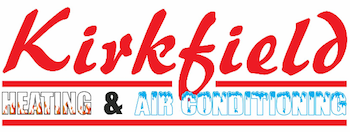
If you’re unsure whether your Winnipeg residence has bad indoor air quality (IAQ), it probably does.
We are indoors a lot. As a matter of fact, we’re inside up to 90% of the time, according to the U.S. Environmental Protection Agency. And the air inside residences could be 2–5 times more polluted than outdoors, which may create long-term health issues.
Most Common Sources of Unsatisfactory IAQ
We’ve compiled a list of the most ordinary causes of poor IAQ, the issues they cause and how you can fix these indoor air pollutants. If you’re concerned about the air inside your house, we suggest talking with a professional like Kirkfield Heating & Air Conditioning about which products are a good fit for your home.
Volatile Organic Compounds
Volatile organic compounds, or VOCs, are fumes emitted from common household items.
They’re found in paint and stains in addition to:
- Furniture
- Carpet
- Building materials
- Cleaning products
- Cosmetics
- Air fresheners
- Candles
When these fumes accumulate in your home, they can irritate your eyes, nose and throat. They may also create headaches and nausea. Regardless of whether your home is in a rural or industrial area, an EPA study found indoor levels of these fumes can be 2–5 times worse than the air outdoors.
Always adhere to the manufacturer’s guidelines when using paint or cleaning supplies. Opening a window can help vapors disappear faster.
Air purification systems can also help. This unit partners with your heating and cooling equipment to clean indoor air. When hunting for a system, ensure it’s specifically made to wipe out VOCs.
Dust and Pet Dander
Dust and pet dander can aggravate health problems like asthma and allergies, especially when it constantly gets redistributed by your residence’s comfort unit. While you can vacuum more routinely and get an improved air filter, an air filtration system could be a better fit.
This equipment hooks to your comfort equipment to provide strong filtration. Some kinds have hospital-level filtration for eliminating particles and bioaerosols.
Lingering Odors
New residences are securely sealed to enhance energy efficiency. While this is fantastic for your heating and cooling costs, it’s not so good for your IAQ.
Stale odors can hang around for a greater amount of time as your home is pulling in a smaller amount of fresh air. Because keeping your windows open throughout the year isn’t a possibility, here are two methods you can make your indoor air smell better.
An air purification system is put in your ductwork to wipe out odors before they recirculate. Search for one with a carbon filter and the power to break down harmful VOCs. These systems can also help keep your household healthy by wiping out most bacteria and normal allergy triggers like pollen and mold spores.
A ventilation system takes out musty indoor air and exchanges it with crisp outdoor air. There are two kinds of units (heat recovery and energy recovery), so ask our professionals for more information on which type is ideal for your residence.
Unsteady Humidity
It’s essential your house’s humidity remains even. Air that’s too moist can lead to mold, while dry air can create respiratory symptoms.
Our pros suggest 40–50% for ideal comfort. To keep yours even, think over getting a whole-home humidifier or whole-home dehumidifier with your comfort equipment.
In place of having to pull a humidifier from room to room, this product delivers even humidity across your house.
Carbon Monoxide
Carbon monoxide is colorless gas you can’t smell. It occurs when there’s insufficient combustion in fuel-burning units, like gas heating systems, water heaters or fireplaces.
It presents a serious health risk. In little levels, it can create flu-like sickness like headaches and nausea. It may be deadly in large levels.
We recommend annual furnace maintenance to make sure your equipment is working like it should. This work allows our technicians to see issues before they begin, including malfunctions that can lead to carbon monoxide leaks.
The best way to keep your residence free of carbon monoxide is to install detectors. These alarms should be on all floors near bedrooms and living spaces.
Better Your Home’s Air Quality with the Kirkfield Heating & Air Conditioning Specialists
Aware that your residence has bad air quality but not sure how to make it better? Or unsure which product is right for you? Give our approachable HVAC experts a call at 204-272-8128 or contact us online right away. With free estimates and pro service, we’ll help you locate the right solution for your home and budget.




